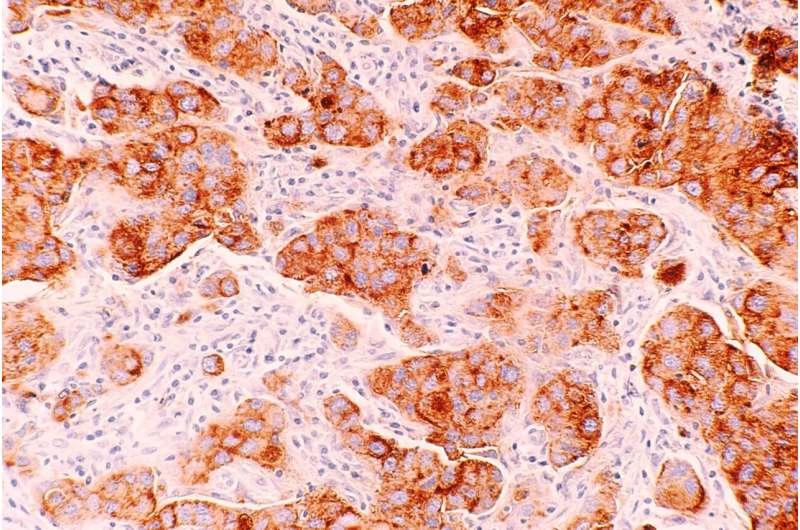Innovative Complex Promotes Immunogenic Cancer Cell Death

A groundbreaking drug complex developed by Ruhr University Bochum induces immunogenic cancer cell death, enhancing immune response against tumors and metastases. This innovative approach could revolutionize cancer therapy and improve patient outcomes.
Recent research from Ruhr University Bochum in Germany has introduced a novel drug complex that triggers a unique form of cancer cell death known as immunogenic cell death. Developed by two junior research groups, this complex has the remarkable ability to signal the immune system to recognize and attack cancer cells, including those that have spread to distant parts of the body. The key component of this drug is a gallium-based complex that infiltrates cancer cells and induces oxidative stress within the endoplasmic reticulum, a critical cell organelle. This stress leads to the release of proteins from the endoplasmic reticulum and nucleus, serving as potent warning signals that activate the immune system to identify and eliminate harmful cancer cells.
This discovery is significant because it trains the immune system to target and destroy cancer cells throughout the body, potentially offering an effective strategy against metastases, which are responsible for about 90% of cancer-related deaths. The active ingredient has been successfully tested on cervical cancer cell lines, and future research aims to develop targeted delivery systems that ensure the drug accumulates specifically in cancer cells. These could include methods activated by external signals such as ultrasound or light, enhancing treatment precision.
The researchers, led by Dr. Johannes Karges and Dr. Carlos Plaza-Sirvent, emphasize that this approach could redefine cancer therapy by harnessing the body's immune response, thus offering a promising avenue for chemoimmunotherapy. Their findings are detailed in the Journal of Medicinal Chemistry, highlighting the potential of immunogenic cell death as a therapeutic strategy.
This breakthrough not only advances our understanding of how to induce a strong immune response against cancer but also opens pathways to new treatments that could improve survival rates by effectively eliminating metastases and preventing cancer spread. Source: https://medicalxpress.com/news/2025-07-complex-immunogenic-cancer-cell-death.html
Stay Updated with Mia's Feed
Get the latest health & wellness insights delivered straight to your inbox.
Related Articles
Effective System-Wide Initiative Enhances Treatment for Opioid Use Disorder
A nationwide system-wide program has shown significant improvements in treating opioid use disorder by expanding access to medication-assisted treatment within healthcare settings, reducing hospital readmissions, and fostering coordinated care. Learn how Ohio State’s innovative approach can serve as a model for other health systems.
Innovative COVID-19 Database Offers Insights for Future Pandemic Preparedness
A comprehensive COVID-19 research database developed by Swinburne University offers critical insights to enhance global preparedness for future pandemics through organized analysis of over twenty years of coronavirus research.
Breakthrough in Mitochondrial Donation: Eight Healthy Babies Born Using Genetic Technology from Three People
The first eight healthy children born through mitochondrial donation in the UK mark a major scientific milestone, offering hope for families affected by genetic disorders. However, ongoing questions about safety, effectiveness, and transparency highlight the need for continued research and responsible governance.
The Impact of Kidney Transplants on Pregnancy Risks in Assisted Reproductive Technology
Recent research reveals that women with kidney transplants using assisted reproductive technology face increased pregnancy risks, but long-term outcomes remain positive, supporting ART as a safe option with proper care.



